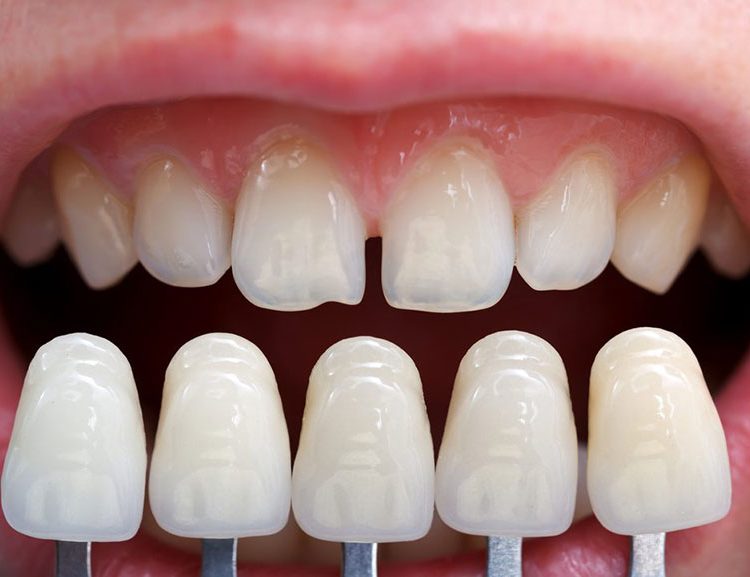It's a question many people ask after getting dental work done: what happens if a veneer falls off? While dental veneers are known for their durability and cosmetic appeal, they can occasionally become loose or fall off due to various reasons. Understanding why this might happen, how to respond, and what to expect next is crucial in maintaining your smile. Fortunately, modern Dental Veneers in Dubai—whether porcelain veneers or composite veneers—are designed to stay in place for many years, but issues can still arise.
Why Dental Veneers May Fall Off?
Veneers are custom-made shells that bond to the front of your teeth to enhance their appearance. But sometimes, due to factors like age, wear and tear, or biting hard objects, a veneer may become dislodged. This leads people to search for answers to common questions like: “Why did my veneer come off while eating?” or “Can a veneer be reattached?”
Here are the most common reasons why a veneer might fall off:
- The dental cement bonding it to the tooth has worn down over time
- You’ve bitten into something hard like ice, nuts, or hard candy
- Teeth grinding or jaw clenching (bruxism) has weakened the veneer
- Poor fit or improper placement during the initial bonding
- Tooth decay or damage to the underlying tooth structure
- Trauma or accidental impact to the mouth area
Whatever the cause, knowing what to do immediately can make a big difference in your outcome and help preserve your overall oral health.
How Important Is It to Act Quickly?
If you’re wondering “Is it a dental emergency if a veneer falls off?” the answer depends on the situation. While it might not always be painful, exposing the natural tooth underneath can lead to sensitivity, discomfort, or further damage. That’s why prompt attention is critical.
Here’s what you should do right away if your veneer comes off:
- Do not throw it away – Keep the veneer safe in a clean container or soft cloth
- Avoid chewing on the exposed tooth
- Rinse your mouth with warm water to prevent infection or irritation
- Use dental wax or sugar-free gum to cover the exposed tooth if sharp
- Book an appointment promptly to have the veneer assessed or replaced
Remember, veneers are cosmetic but also serve as protective layers. Leaving a tooth exposed too long can make it vulnerable to bacteria and damage.
What Are the Risks If You Delay Treatment?
A veneer falling off might not seem like a big issue if there's no pain involved, but it can lead to complications if ignored. Many patients ask: “What happens if I don’t replace a veneer?” or “Can I just leave the tooth without it?”
Here are some potential risks of delaying action:
- Increased sensitivity due to exposure of the enamel or dentin
- Chipping or cracking of the exposed natural tooth
- Tooth decay as bacteria more easily reach the unprotected tooth
- Gum irritation or inflammation around the affected area
- Aesthetic concerns like uneven smile or visible discoloration
While veneers falling off isn't common, it's not unheard of. It's always better to respond quickly and appropriately to protect both the cosmetic and health aspects of your smile.
Benefits of Rebonding or Replacing a Veneer:
Many people ask, “Can a veneer be re-glued?” or “Do I need a brand-new veneer?” In many cases, a Dental Veneers that has fallen off can be re-cemented if it’s still in good shape and the underlying tooth hasn’t been compromised.
Here are some benefits of getting your veneer properly restored:
- Preservation of tooth structure and reduction of future dental work
- Restored smile aesthetics, ensuring confidence and uniformity
- Continued stain resistance, especially with porcelain veneers
- Strength and durability, offering years of wear when bonded properly
- Improved comfort, as veneers offer a smooth surface against your tongue and cheeks
Replacing or reattaching a veneer doesn’t just bring back the beauty of your smile—it also helps protect your oral health in the long run.
Frequently Asked Questions About Veneers Falling Off:
Can I glue my veneer back on myself?
No. Using over-the-counter glue or adhesives can damage both the veneer and your natural tooth. Always let a dental professional handle reattachment.
How long should veneers last before falling off?
Porcelain veneers typically last 10–15 years or longer with good care. If a veneer falls off earlier, it could be due to an underlying issue.
Is pain normal when a veneer falls off?
Some discomfort or sensitivity may occur, especially if dentin is exposed. Avoid extreme temperatures and call for a check-up.
Can veneers fall off while sleeping?
It’s rare but possible, especially if you grind your teeth at night. Wearing a night guard can help prevent this.
Is it common for veneers to come loose?
No, but it’s not unheard of. Proper bonding, good oral hygiene, and avoiding trauma will help prevent this.
Should I get all my veneers checked if one falls off?
Yes. If one veneer has come off, it's a good idea to have the others evaluated to prevent future issues.
Conclusion:
So, what happens if a veneer falls off? While it can be surprising or even stressful, it’s a manageable issue when handled the right way. Dental veneers—especially porcelain veneers—are generally secure, but they can occasionally detach due to wear, impact, or bonding issues.
Reacting quickly is key: save the veneer, protect the exposed tooth, and arrange for prompt dental care. Whether it can be rebonded or needs replacement, taking action ensures your smile stays healthy and beautiful. Regular maintenance and care will minimize the chance of recurrence and extend the life of your veneers. The next time you're concerned about a veneer loosening, you’ll know exactly what steps to take to restore your confident smile.

